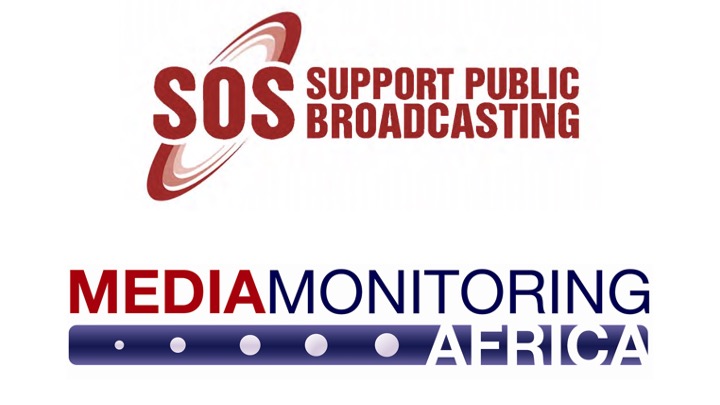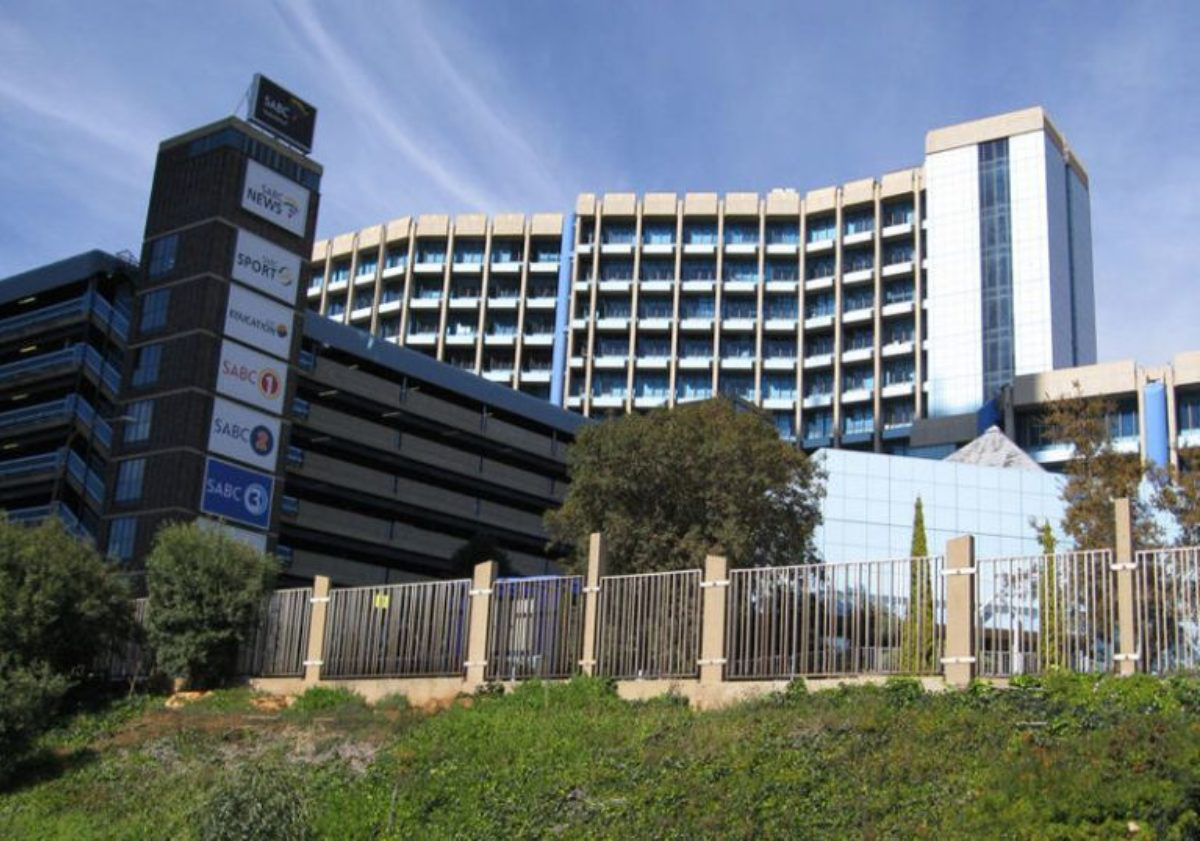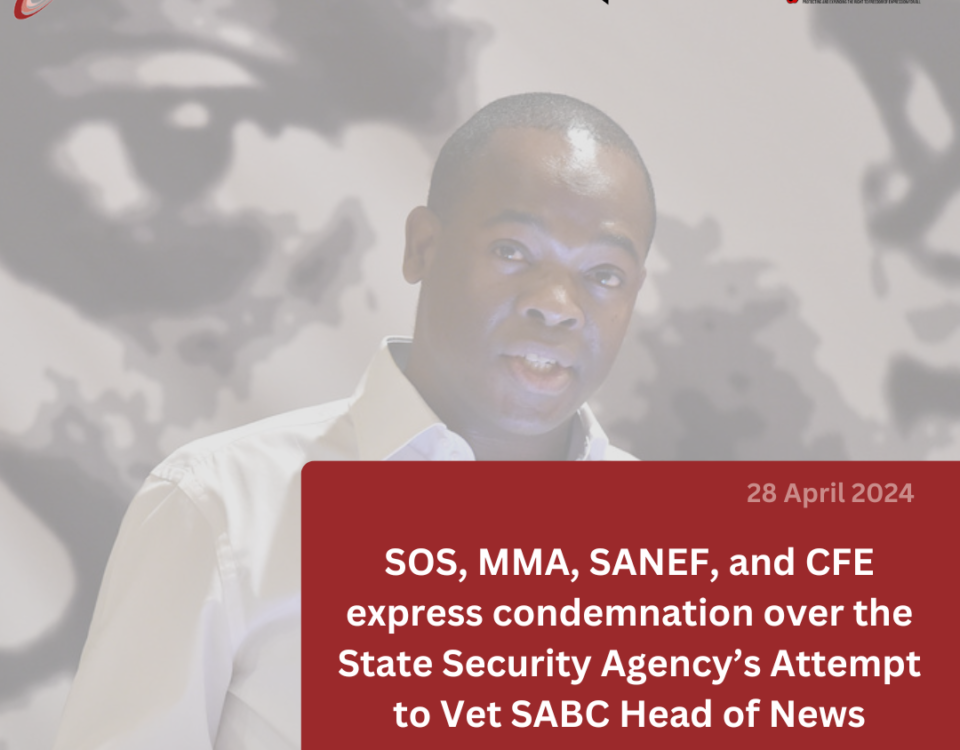
Covid-19 ICT Regulations: Local Content Quotas
May 11, 2020
SOS welcomes the publication of the 2020 SABC Editorial Policies
July 3, 2020SOS and MMA Statement on SABC S189 Notice to Staff

1 July 2020
The SOS Coalition (SOS) and Media Monitoring Africa (MMA) take note of the SABC’s Notice of Possible Job Redundancy/Retrenchment and Notification in Terms Of Section 189(3) of the Labour Relations Act 66 of 1995 (“LRA”) that was written to staff members on 18 June 2020.
This action is, in our view, the culmination of a series of crises that have rocked the public broadcaster over the past decade or so.
In 2016, Parliament had, at last, recognised the unsustainability of this merry go round of collapse and rescue and initiated an Inquiry into the fitness of the SABC Board. But the reality is that there has been very little commitment and action from the Government to assist the public broadcaster to find sustainable solutions to its cyclical financial and political crises. For many years, only 20% of the SABC’s revenues have been derived from public funds (licences and government funds), leaving it to be reliant on commercial advertising revenues. The risk of that over exposure to the markets is part of what we are experiencing now.
It is a hard fact that the SABC is operating in the middle of a global pandemic where additional demands on its public service mandate are being made, including the addition of a dedicated Education channel as well as a host of public service announcements and programming. This, while operating in an economic recession with the near collapse of advertising funding, particularly during lockdown. The media sector, in particular, has been shedding jobs at an enormous pace for the last two years, reaching a crescendo in the past four months, where approximately 700 jobs have been lost and in this context it seems difficult to see how our under-funded public broadcaster will be prevented from facing similar bad fortunes.
Another inescapable truth is that many Parliamentarians and Ministers either stood by silently or loudly applauded when the SABC engaged in reckless hiring and salary inflation during the term of the previous Board and its Motsoeneng-led management, doing nothing about years of wasteful fruitless expenditure as found by Parliament in its Ad Hoc Committee Report on the SABC and corroborated by the Auditor-General’s findings at the time. During the Ad Hoc Inquiry, the Special Investigating Unit also confirmed the Public Protector’s findings that some appointments of SABC staff/and or salary increases were irregular. Therefore, one of the recommendations in Parliament’s final 2017 Ad Hoc Committee Report was that the irregular appointments, salary increases, and promotions be investigated, and corrective measures be implemented.
This was echoed by Treasury which, in 2009/2010, imposed obligations to cut the SABC staff complement and its wage bill in return for bailouts. Similarly, the latest SABC Bailout also carried a reduction of the headcount as one of its conditions from Treasury and the Minister of Communications. By 2018, 45% of the SABC’s expenditure being spent on salaries and only 27% being spent on content, its core business.
In real terms, by 2018, the salary bill, according to the SABC, stood at R3.1bn; the organisation carried R1.3bn in debt and only generated R7,2bn in revenue. It also had financial losses of over R622m in the previous financial year. Despite these conditions, the SABC continued to pay its staff salaries notwithstanding that it defaulted on paying its independent producers. The failure to pay its independent producers then resulted in retrenchments and staff cutting for the independent television production industry.
The SABC desperately needs to – adapt and shift and reorganise in order to meet the demands of a digital future where it is not only competing with local broadcasters, but online global players and audience shifts away from traditional linear broadcasting.
It should be of great concern to all that a skills audit carried out by the SABC found that over 800 of the current staff complement lack the skills or qualifications necessary to perform the jobs they are paid to do. While efforts to shift the SABC into a new digital era are laudable and necessary, we need to see and hear more on plans for what a revitalised, sustainable SABC will do in future and how it will serve the citizens of this country; how will it meet its public mandate in the digital era; what investments will be made in our local content industries; how it will robustly engage with African broadcasters to sell our content on the Continent. We remain deeply concerned that, to date, no arrest or further action appears to have taken place with regard to finding the culprits responsible for the threats and other actions against the SABC 8.
SOS and MMA are of the view that the long-term financial sustainability of the SABC is essential to the well-being of our democracy. We are painfully aware that any SABC retrenchments in the media sector will exacerbate unemployment in that sector which has already been hit hard by the mass retrenchments and ongoing salary reductions across the country for the past decade and, particularly, in the past four months. To this end we agree that any such retrenchments must be as a matter of last resort and must be closely matched to the skills audit to ensure that content-related staff not be touched.
When all other avenues have been explored, the last people to be affected must be those who keep the screens and airwaves going. The digital era that we have been fast-forwarded into will still require journalists, producers and other content production skills. In line with that strategy, we need to identify where there is a need for a restructuring. Restructuring, where possible, will allow the SABC to retain, retrain and to utilise the best skills it has available while having the least impact on job losses. Therefore, where at all possible, remaining content staff must also be given options to upskilling and/or re-skilling.
Lastly, our organisations have long been at the forefront of calls for a funding model that is appropriate for the SABC. It cannot continue to derive 75% of its revenue from advertising when it is obliged to carry public service programming that is not publicly funded. While the SABC leadership could develop a business model that takes cognizance of the need to deliver public interest content in the digital era, Parliament will need to review the funding model through an appropriate policy development process. It is clear that public broadcasting cannot be truly profitable if it is to be public mandate driven, and therefore, in line with international best practice, our view is that the public must fund the SABC to ensure that public broadcasting itself is sustainable.
About Us:
The SOS Support Public Broadcasting Coalition (SOS) is a civil society coalition that advocates for the presence of robust public broadcasting in the public interest to deepen our constitutional democracy. The coalition SOS campaigns for an independent and effective public broadcaster. We engage with policy makers, regulators, and law makers to secure changes to promote citizen friendly policy, legislative and regulatory changes to public and community broadcasting public broadcasting.
MMA is Media Monitoring Africa (“MMA”) is an NGO that has been monitoring the media since 1993. We aim to promote the development of a free, fair, ethical and critical media culture in South Africa and the rest of the continent. The three key areas that MMA seeks to address through a human rights-based approach are, media ethics, media quality and media freedom. MMA’s vision is a just and fair society empowered by a free, responsible and quality media.
For further information please contact:
Duduetsang Makuse (National Coordinator, SOS Coalition)
duduetsang@soscoalition.org.za
+2760 911 5889
OR
Thandi Smith (MMA Head of Policy)
thandis@mma.org.za
+2773 470 7306

